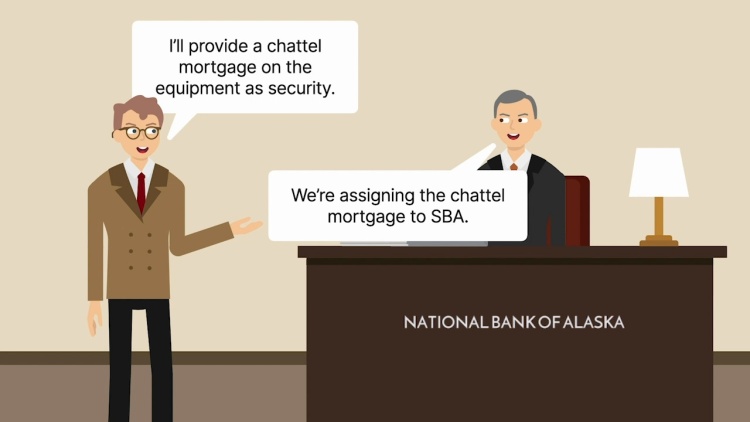Brodie Hotel Supply, Inc. v. United States
United States Court of Appeals for the Ninth Circuit
431 F.2d 1316 (1970)

- Written by Josh Lee, JD
Facts
Brodie Hotel Supply, Inc. (Brodie) (plaintiff) sold restaurant equipment to Standard Management Company, Inc. (Standard) in 1959 to use in an Alaska restaurant. When Standard went bankrupt, Brodie repossessed the equipment but left it in the restaurant. James Lyon began operating the restaurant on June 1, 1964, and Brodie allowed Lyon to use the equipment. Brodie and Lyon negotiated the terms of the sale of the equipment for several months. Before the sale was finalized, Lyon borrowed $17,000 from the National Bank of Alaska on November 2, 1964 and pledged the restaurant equipment as collateral for the loan. The National Bank of Alaska assigned its interest to the Small Business Administration (SBA) (defendant). On November 4, 1964, the National Bank of Alaska filed a financing statement noting this interest. On November 12, 1964, Brodie issued a bill of sale for the equipment to Lyon. Brodie and Lyon entered into a security agreement (a chattel mortgage, specifically) for the purchase price of the equipment, with the equipment as collateral. Brodie filed a financing statement documenting this on November 23, 1964. Subsequently, Brodie filed this lawsuit against SBA, who is represented by the United States government, to determine which security interest has priority. The district court held that Brodie’s interest was superior, because it was a purchase-money security interest (PMSI). The United States appealed to the United States Court of Appeals for the Ninth Circuit.
Rule of Law
Issue
Holding and Reasoning (Hamley, J.)
What to do next…
Here's why 907,000 law students have relied on our case briefs:
- Written by law professors and practitioners, not other law students. 47,100 briefs, keyed to 996 casebooks. Top-notch customer support.
- The right amount of information, includes the facts, issues, rule of law, holding and reasoning, and any concurrences and dissents.
- Access in your classes, works on your mobile and tablet. Massive library of related video lessons and high quality multiple-choice questions.
- Easy to use, uniform format for every case brief. Written in plain English, not in legalese. Our briefs summarize and simplify; they don’t just repeat the court’s language.





